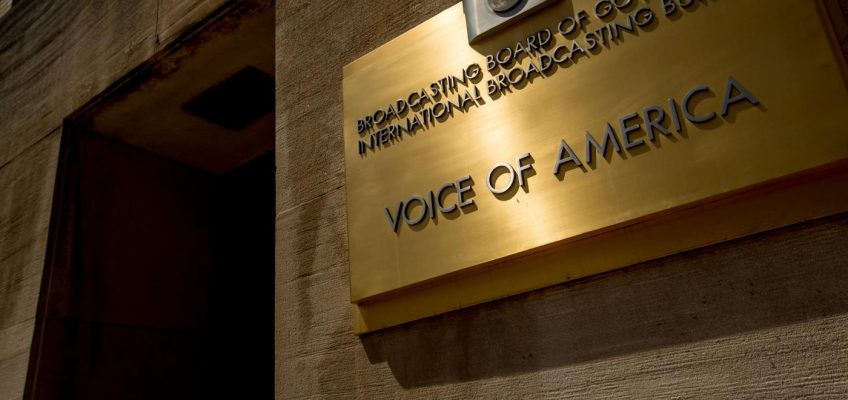Blogs
Slots Capital internet casino | Far more Games
Thank you for visiting Caesars Ports!
Preferred Game
Play Caesar’s Empire within the Local casino for real Money
Allege Free Revolves, Totally free Potato chips and much more!
We strive to make a challenging yet reasonable sense for our professionals, and now we apologize if you feel you are struggling to advances. Their input is actually rewarding in order to all of us as we work to improve the game and you may enhance the enjoyment for all people. Do all you are able to better to overcome Rome near to on the Romans & spin it 5-reel & 20-shell out range on the internet position.
Slots Capital internet casino | Far more Games
Caesar’s Empire 100 percent free slot brings together vintage position convenience which have nice perks. The fresh titular letters, Caesar and Cleopatra, dominate the brand new reels, having Caesar offering since the Nuts symbol, tripling all winning combos the guy’s part of. Cleopatra, the best investing advanced symbol, sales an impressive dos,five hundred gold coins to own a couple of five to the an energetic spend line, amplified to a striking 7,500 coins when along with an untamed icon. Most other premium signs, along with a good helmet, an apple basket, and you will a boundary having a sword, provide nice advantages, with 5 helmets producing five hundred coins, escalating to at least one,five hundred coins having an untamed symbol.
Thank you for visiting Caesars Ports!
You’lso are more than welcome to accomplish that since it is completely optimized for your gizmos with the provides kept. Caesar and you can Cleopatra are the two main letters of the video game, Slots Capital internet casino which have Caesar acting including a crazy symbol and his awesome girlfriend Cleopatra since the large investing superior symbol. The successful combinations having an untamed symbol is increased from the step three. The game features an income so you can User (RTP) speed around 95%, which is normal for some online slots games.
It’s a great way to boost your bankroll appreciate an excellent fascinating part of the video game. RTP is the key contour to possess harbors, doing work opposite our home border and you can appearing the potential incentives so you can players. RTP, or Return to User, try a portion that shows just how much a slot is expected to spend returning to participants over a long period. It’s determined based on many otherwise vast amounts of revolves, therefore the per cent is actually direct finally, maybe not in a single class. Identical to Canadians, anyone also provide a great choice if they are now living in Australia otherwise Argentina.
The features tend to be 100 percent free revolves, a great jackpot away from 7,five-hundred loans, a haphazard progressive jackpot, scatter signs, and nuts signs. The newest spread symbol used in which casino slot games game is the Coliseum icon and it turns on the bonus round. The fresh spread icon will act as a good multiplier which have multiples of just one, 3, 10, or a hundred when you struck 2,step 3,4,5 spread out symbols anywhere to the reels. The main benefit bullet try triggered whenever step one or maybe more nuts symbols show up on step 1,2,3,cuatro reel plus the spread out icon for the fifth reel. After brought about, you can get an initial from 10 free spins, and inclusion 5 100 percent free revolves will be given with this class.
Therefore, the experience happens in front of one’s Coliseum, plus don’t care and attention, you will not attend battles anywhere between gladiators, which will also be fascinating.
Caesars ‘s the earth’s extremely geographically ranged casino-amusement business.
Simultaneously, take note of the video game’s incentive have, because they can assist enhance your profits further.
Provide cards, in-household Caesars video clips, and you can 100 percent free play regarding the gambling enterprises is one of many something to the render.
It’s your decision to make sure online gambling is judge inside the your neighborhood also to pursue the local regulations.
One to Caesars Benefits some thing your own collect away from betting on your favorite online game can be utilized to your many has in the these types of metropolitan areas. Caesar’s Empire try a famous slot online game you to definitely transports professionals back in order to old Rome, in which they can experience the brilliance and you can opulence of your own Roman Kingdom. Having amazing image, immersive sound files, and you may fun game play, it slot game is sure to amuse participants of all the expertise account. The fresh free revolves bonus are brought about whenever one or more Caesars are available, plus the Colosseum icon seems to your fifth reel.
Preferred Game
So it motif features lots of riches and electricity, encapsulating the newest magnificence out of bygone weeks filled with indulgence, valor, and you can conquest. Experience the fresh opulence as the for every twist of your own reels unveils coins, triumphant laurels, ornate chariots, and you will sculptures of the legendary Julius Caesar themselves. The atmosphere try purple and regal, capturing the brand new substance of one’s Roman Kingdom in the their top. Caesar Coin alternatives all other icons but Coliseum in any successful consolidation. What’s greatest about this slot is the fact all the wins try tripled when Ceasar finishes the newest line. Rather, they work on a couple of gameplay provides and you will incentives you to was proven to work effectively along side ages.
With Innovation and you may Simple Take pleasure in available, you’re into has a goody with two of the leading alive broker game designers. Then you will want observe appropriate roulette dining caesars empire $step one deposit tables and make explore of it. Let-alone the new gambling standards, you’ll you would like discover before you could withdraw the winnings. One of several important criteria you spend money on would be the fact game inform you are different.
Play Caesar’s Empire within the Local casino for real Money
The fresh RTP is 95.00% and the extra game is actually a no cost Spins feature, its feet games jackpot is 7500 coins in addition to the haphazard modern jackpot, plus the Caesar’s Empire position has a Roman Kingdom theme. The fresh mobile program is not difficult to help you browse, having user friendly reach control which make spinning the brand new reels and creating added bonus have effortless. The overall game is compatible with each other android and ios gizmos, so professionals can also enjoy the newest Roman thrill to their preferred system. Bovada Casino application in addition to stands out and 800 cellular slots, along with personal progressive jackpot harbors. The new application provides a delicate and you can fascinating associate sense, making it a favorite indeed cellular players.
Allege Free Revolves, Totally free Potato chips and much more!
On the Roman Kingdom, army and troops were given greatest benefits. Inside Caesar’s Empire on the web slot, helmet and also the sword and you can shield signs pays you a great a great sum of money. The fresh substitute Caesar icon is exchange various other symbol which help you get a winning consolidation.
This type of limits grew up and re-implemented several times in the 2020, allowing simpler usage of subscription within the COVID-19 pandemic. Roman Talmaci, the newest bailiff just who treated this case, verified you to sum of money mentioned to the phrase try completely retrieved. Although not, he would maybe not give us more information, saying important computer data is actually individual. All these dining table online game have a great range between the categories, but it is apparent one Poker is the greatest desire certainly many of these.
A personal invited incentive may be worth 1.75 million Promote Coins and you will thirty five Sweeps Coins inside the fresh a great 66% discounts.
The newest Roman Empire is very good, effective and consonant on the empire of your own Vegas gaming organization in lot of respects.
Choosing scatters and you may wilds in numerous configurations and on particular electric guitar, the ball player usually fundamentally receive of many 100 percent free spins which have multipliers.
What are a number of the features you will get entry to for many who play Caesar’s Kingdom for real money?
We would like to as well as discuss that the are a cellular-amicable local casino video game, which means that you can actually win the newest progressive jackpot when you’re to try out on your own smart phone (for those who thus favor).
If the consolidation is a wild symbol, so it payment are turbocharged in order to 7,500 gold coins.
Which slot has an old theme, 100 percent free revolves, grand spread out victories, and you may ample wilds that make this video game not just enjoyable, and also highly successful, as well. Caesar’s Kingdom slot is actually a moderate-volatility online game, which means that wins can be found in the a well-balanced speed—frequent adequate to remain players involved, although not so frequently concerning improve game predictable. The brand new average volatility now offers a good mixture of exposure and you can award, for the prospect of big profits inside incentive provides and you may 100 percent free spins series. The brand new crazy symbol within the Caesar’s Empire position is illustrated by Roman protect.



